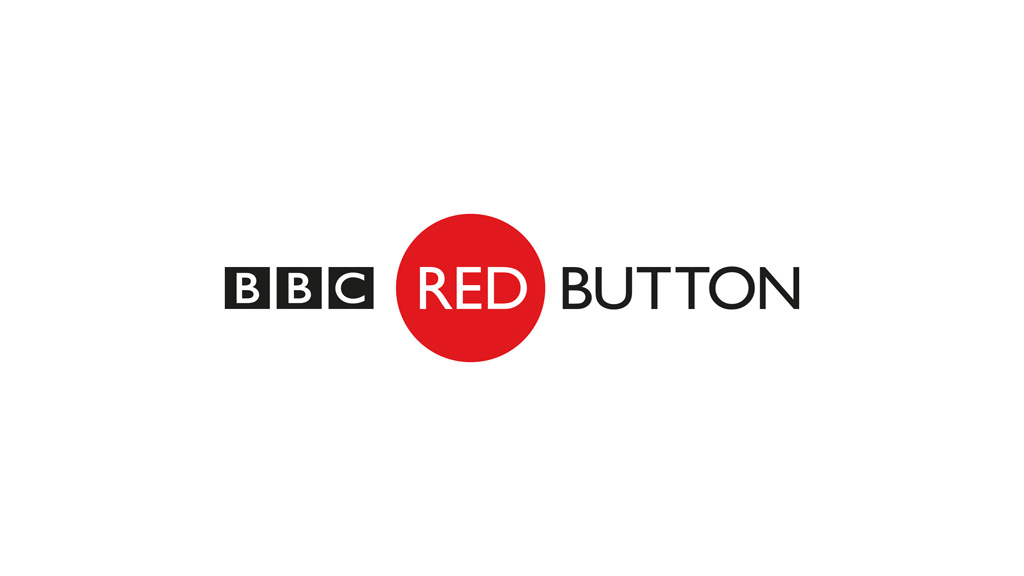The BBC is planning to reduce its ‘red button’ service and focus its interactive television efforts on connected televisions and iPlayer as part of a cost cutting programme. Having managed the launch of interactive television services at the BBC when they were considered state of the art, William Cooper of informitv reflects on the role of the red button.
The red button interactive television services were introduced over 15 years ago to provide additional features on digital television by pressing the red button on the remote control. The digital text service eventually replaced the Ceefax teletext service that the BBC pioneered in 1973.
The BBC had proclaimed a “red button revolution” bringing “power to the people” and encouraged the nation to “press red” to interact with their television.
The scope of such interaction was inherently limited by the one-to-many broadcast medium of television. In practice it meant access to occasional special event streams and news, sport and weather headlines and other information services.

15.5 million adults a week in the United Kingdom use the service, according to the BBC Annual Report and Accounts. 3.8 million people used the red button Wimbledon tennis service in 2014, while the Glastonbury Festival coverage attracted 2.1 million viewers.
Nigel Walley of the TV consultancy Decipher said: “For a long time we worked with the BBC Red Button team and they were always shocked that the red button numbers around something like the Olympics and Wimbledon could dwarf iPlayer by a factor of 10 and the BBC press office would only trumpet the iPlayer numbers.”
Although the BBC iPlayer is used by an estimated 15.5 million unique browsers a week, only around a quarter of video requests are through television devices and displays. Episodes of the top programmes produce around 2 million requests.
The original red button services were broadcast as part of the digital signal on satellite and terrestrial television. There has been a move to a hybrid model, where interactive services are delivered over broadband to network-connected television receivers. The BBC calls this ‘Red Button+’.
The HbbTV standard supports hybrid broadcast and broadband television services and forms the basis for the next-generation Freeview Play platform.
While the broadcast text services are universally available, many people still do not have network-connected televisions. The communications regulator Ofcom reports that only one in five households has a smart television and one in five households does not have fixed broadband. Those that are most dependent upon traditional television are more likely to be older viewers, who tend to watch the most television.
As BBC media correspondent David Sillito noted: “The BBC knows it has to chase the viewers of tomorrow and deliver programmes in the way they want to watch them, but it can’t afford to alienate the people who are the heaviest users of its services.”
The reduction in red button services is part of a plan to save £150 million to address an annual shortfall in funding, ironically blamed on the success of the iPlayer. The BBC says a ‘loophole’ allows viewers to watch catch-up television without a licence, which has led to a loss of £150 million in annual revenue.
The BBC aims to trim around £16 million from its annual budget through savings in distribution costs, a phased exit from the red button broadcast service and further savings from BBC online. That represents around 0.3% of the £4.8 billion annual budget of the BBC. It is about 2.3% of the £700 million a year in cost cutting the BBC will need to find to balance its books by the next decade, after agreeing to cover the cost of free television licences for those aged over 75.
The BBC is planning to save a further £50 million a year by cutting 1,000 management posts, £35 million from sport, £5 million from News, and another £12 million from Online.
Beyond that, it is difficult to see how save another half a billion pounds a year without significantly cutting services.
Tony Hall, Baron Hall of Birkenhead, the director general of the BBC, described cuts to budgets for programmes and services as “unavoidable”.
“No Director-General wants to announce reduced spending on services that the public love,” he said. “This is very tough, but the BBC’s financial position means there is no alternative.”
